Search Results
Search
Filter results
Advanced Filters
Your search returned 280 Solutions
-
Inclusive Education in post-war instability
The effective and creative use of resources has enabled a programme of inclusive education and early intervention to be rolled out in the Kurdistan region of Iraq. In 2007, the programme covered 42 schools, 62 teachers and 316 children. In 2010, there were 318 schools, 400 teachers and 2,051 children.
UNICEF - Iraq, Inclusive Education Programme of 2007 by the Ministry of Education, Iraqi-Kurdistan, Iraq, Iraq -
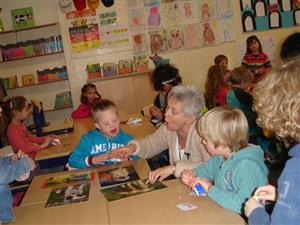
Using courts and litigation for the right to Inclusive Education
In1school addresses the right to Inclusive Education. Project members are collecting cases and data on educational exclusion and team up with lawyers to develop litigation strategies. They also communicate findings by media and support parents who are struggling to enrol or keep their children in regular education.
In1school, Netherlands -
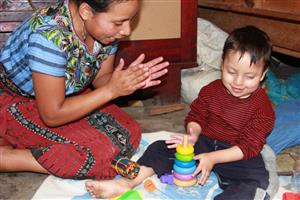
Comprehensive Inclusive Education for indigenous communities
ADISA is an NGO providing community-based Inclusive Education to children with disabilities from the indigenous community of Santiago Atitlán, Guatemala. The integrated programme involves teachers, parents, students and the community. The annual cost fort he programme is approximately USD 60,000.
ADISA - Association of Parents and Friends of People with Disabilities, Inclusive Education Programme, Guatemala -
Community Based Inclusive Development promoting Inclusive Education in Zanzibar
The project focuses on the training of teachers in inclusive methods and intervention, as well as on fostering greater community awareness by working with parents and administrators. The project has been implemented in three of Zanzibar’s eleven districts, and in 2018 more than 4,300 children with disabilities were enrolled.
MECP-Z - The Madrasa Early Childhood Programme Zanzibar, School Enrolment, Tanzania -
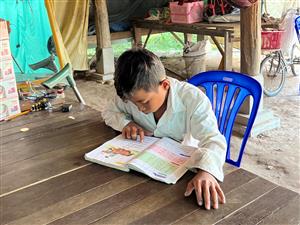
Inclusive education and vocational training in remote rural areas of South-East Asia
Disability Development Services Programme (DDSP), Cambodia: Implements inclusive education projects in rural Pursat province. Integrated children with disabilities into mainstream schools, increasing inclusive class pupils from 255 to 1,105 by 2023.
Mith Komar Pikar (‘Friends of Children with Disabilities’), Cambodia -
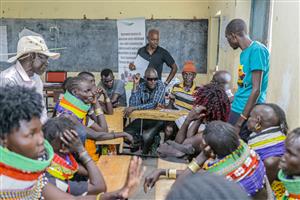
Ensure inclusive early childhood care and education in refugee camps and emergencies
CBM and Waldorf Kakuma Project, Kenya: Runs an inclusive education project in Turkana County for children with disabilities. Provides learning materials and teacher training. From 2021 to 2023, supported close to 2,000 children.
CBM Turkana Inclusive Education Project, Kenya -
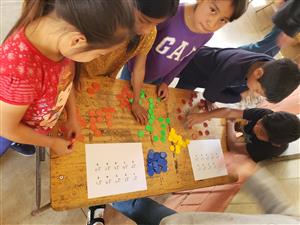
Empowering inclusive education with ICT integration
ADISA and CBM's Inclusive Education Programme, Guatemala: Promotes inclusive education through Universal Design for Learning (UDL). Between 2022 and 2023, trained 500 teachers and 400 parents, benefiting 800 children in ten schools.
Promoting inclusive education in Guatemala through the development of a Universal Design for Learning (UDL), Guatemala -
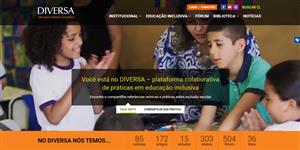
A worldwide online library of good practices in Inclusive Education
DIVERSA serves as a "resource bank" on inclusive education for educators, policy makers and other stakeholders. The website includes disability data, policies, and strategies as well as stories and articles. Although it is available in Portuguese only, DIVERSA has had users from more than 100 countries.
Rodrigo Mendes Institute, DIVERSA, Brazil -
Creating a role model for Tanzania`s Inclusive Education policy
The project seeks to model Tanzania’s National Strategy on Inclusive Education by initiating systematic changes in education in three districts. These changes will influence school management, teacher training, and pupil support, as well as raise awareness and ensure that families and the communities are involved.
ADD International - Action on Disability and Development, Tanzania -
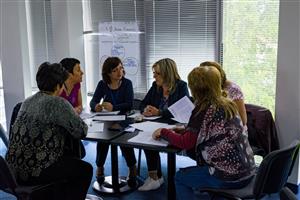
A systematic approach to creating inclusive school environments
"One school for All" is the first whole school approach to Inclusive Education in Bulgaria. The two-year programme offers schools a structured and systemic approach in four key areas: school leadership, teaching practices, partnership with parents, and child safety. In Bulgaria, the programme costs around € 5,200 for a school.
Association for Shared Learning ELA, One School for All – a model for creating inclusive school environments, Bulgaria